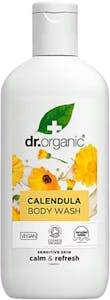Understanding Plaque Psoriasis
Written and fact-checked by Alessandro Grenci, Superintendent Pharmacist. Read our editorial policy to see how we create informative, accurate content.
Introduction to Plaque Psoriasis
In the vast landscape of dermatological conditions, plaque psoriasis stands out as a notable subject of interest. Its prevalence in the global community underscores the importance of understanding this condition, both for those affected and the medical community at large.
Let's delve deeper into its nature, characteristics, and what sets it apart from other skin conditions. An informed perspective can, after all, enlighten discussions and shape the course of treatment.
What is Plaque Psoriasis?
At its core, plaque psoriasis is a chronic autoimmune skin disease. This signifies a scenario where the body's immune system, in a twist of events, targets its own skin cells. The manifestation? Noticeable raised, red patches accompanied by silvery scales, often visible on areas such as the elbows, knees, and lower back.
However, the story of psoriasis is multifaceted. While "plaque" might be the protagonist, there are other characters in this narrative, each with its unique presentation:
- Plaque Psoriasis: The predominant form, distinguished by its raised, red patches and silvery scales.
- Guttate Psoriasis: Recognized by its small, red spots and is often associated with younger individuals.
- Inverse Psoriasis: Marked by red, smooth lesions, typically found in skin folds.
- Pustular Psoriasis: Characterized by white blisters encircled by red skin.
The emphasis on plaque psoriasis is not arbitrary. As the most common variant, understanding its intricacies can significantly aid in its management and treatment.
As we proceed, we'll uncover the causes, triggers, and treatments of this condition, equipping you with knowledge that transcends mere surface-level understanding.
Causes of Plaque Psoriasis
When diving into the underlying causes of plaque psoriasis, one quickly realizes it's a blend of intricate factors weaving together.
- Genetic Predisposition: Evidence suggests that those with a family history of psoriasis are more likely to develop the condition. This genetic link hints at certain genes playing pivotal roles in its onset.
- Immune System Irregularities: One of the primary culprits is the misdirection of the immune system. Instead of defending the body against foreign threats, it mistakenly launches an offensive against the skin cells. This autoimmune response accelerates the skin cell life cycle, leading to the buildup of skin cells on the surface.
- Environmental Factors: External influences also play a significant role. While they don't necessarily cause psoriasis, they might trigger its onset or exacerbate existing conditions in susceptible individuals.
Symptoms of Plaque Psoriasis
Identifying plaque psoriasis is primarily reliant on its distinctive symptoms. A closer look reveals:
- Physical Appearance: The most recognizable symptom is the appearance of raised, red patches covered with silver-white scales. These patches can range from small, localized areas to extensive coverage over the body.
- Areas Commonly Affected: Certain body regions are more prone to these patches, including:
- Elbows
- Knees
- Scalp
- Lower back
- Discomfort: Beyond the visual symptoms, those with plaque psoriasis often report:
- Itchiness, which can range from mild to severe.
- Pain, especially if the patches become too dry and crack.
Common Triggers of Plaque Psoriasis
While the root causes of psoriasis remain consistent, there are several triggers known to instigate flare-ups or worsen existing symptoms. Recognizing these can be invaluable for management:
- Infections: Certain infections, especially strep throat, have been known to act as catalysts for psoriasis flare-ups.
- Skin Injuries: Physical trauma to the skin, such as:
- Cuts
- Burns
- Sunburns
...can lead to the manifestation of psoriasis patches at the site of the injury, a phenomenon known as the Koebner response.
- Stress: High stress levels, both physical and emotional, can be a potent trigger. It's theorized that stress impacts immune function, which in turn can instigate a psoriasis flare.
- Medications: Some medicines, notably beta-blockers and lithium, can either lead to the onset of psoriasis in predisposed individuals or aggravate existing conditions.
- Alcohol Consumption: Excessive alcohol intake has been linked to both the onset and exacerbation of psoriasis symptoms. The reasons remain a topic of ongoing research but minimizing consumption is often recommended for those with the condition.
- Weather Changes: Climatic shifts, especially transitioning from a warm, humid climate to a cold, dry one, can trigger psoriasis flare-ups. It's believed that the reduced humidity and cold temperature can dry out the skin, prompting psoriasis patches to form.
Understanding the nuances of these triggers allows for better management and potential reduction in flare-ups. While avoiding every trigger might be unrealistic, being informed empowers individuals to make choices that could mitigate the frequency and severity of their symptoms.
Treatments for Plaque Psoriasis
While plaque psoriasis remains a chronic condition, a myriad of treatments aims to alleviate symptoms and improve the quality of life for those affected. Let's unpack the most commonly employed treatments and delve into their modes of action.
Common Topical Treatments
- Corticosteroids: A cornerstone in psoriasis treatment, these creams and ointments predominantly work by reducing inflammation and redness. They soothe the affected areas, leading to a decline in itchiness and discomfort.
- Vitamin D Analogue - Calcipotriol: This compound, though chemically synthesized, emulates the properties of natural Vitamin D. Its primary function is to slow the growth of skin cells, thereby reducing the accumulation of scales on the skin's surface. It is frequently combined with Betamethasone, a corticosteroid, in products such as Dovobet Gel, Dovobet Ointment, and Enstilar Foam. However, Calcipotriol can also be found as a standalone treatment in products like Dovonex Ointment.

- Salicylic Acid: A popular ingredient in many skincare products, it promotes the shedding of psoriatic scales. This makes the skin smoother and alleviates some of the physical discomfort associated with thick patches. For those interested in incorporating this ingredient into their routine, products like the CeraVe SA Smoothing Cleanser and Neutrogena T/Gel Sensitive Scalp are great options to consider.

Alternative Treatments
Modern medicine has its merits, but some individuals lean towards more natural remedies or complementary practices:
- Natural Oils and Extracts: Ingredients like aloe vera and calendula have been noted for their soothing properties and potential to reduce inflammation. Those seeking the benefits of these ingredients can check out products such as Dr. Organic Calendula Body Wash and Graham's Natural Psoriasis Cream, which incorporate their healing attributes.

- Mindfulness and Stress Reduction: Given that stress can act as a trigger, techniques like meditation and other stress reduction strategies can potentially curb the frequency of flare-ups.
How They Work
At the heart of these treatments lies a collective objective: to restore the skin's health and reduce the discomfort. Their primary mechanisms of action include:
- Targeting inflammation, which is at the core of psoriasis symptoms.
- Regulating the production of skin cells to prevent rapid buildup.
- Soothing and moisturizing the skin, which is crucial for areas with thick patches to prevent cracking and bleeding.
FAQs
Navigating the landscape of plaque psoriasis often raises myriad questions. Let's address some of the most frequently posed queries:
- Is plaque psoriasis contagious? No, plaque psoriasis is an autoimmune disorder and cannot be transferred from person to person. Physical contact or shared items won't spread the condition.
- Can diet impact plaque psoriasis? While there isn't a "psoriasis diet," some individuals report reduced flare-ups when consuming an anti-inflammatory diet. It's essential to consult with a nutritionist to tailor dietary choices.
- How often should one apply topical treatments? The frequency of application varies based on the treatment type and severity of the condition. It's best to follow a dermatologist's recommendations or the instructions provided with the product.
- Is there a cure for plaque psoriasis? As of now, there isn't a complete cure for psoriasis. However, treatments can significantly mitigate symptoms and lead to long periods of remission.
- How does plaque psoriasis affect daily life? The impact varies among individuals. Some may experience minimal interference, while others might face challenges related to physical discomfort, self-consciousness, or the need for ongoing treatment.
Armed with knowledge and the right treatment approach, many with plaque psoriasis can lead fulfilling lives while managing the condition effectively.
Sources
- NCBI Bookshelf: Psoriasis - StatPearls - NCBI Bookshelf
- WebMD: Psoriasis Alternative Treatments
- NCBI: Dietary Behaviors in Psoriasis: Patient-Reported Outcomes from a U.S. National Survey
- National Psoriasis Foundation: Plaque Psoriasis
- UpToDate: Treatment of psoriasis in adults
- American Academy of Dermatology: Over-the-counter (non-prescription) treatment for psoriasis
- Medscape: Psoriasis Medication

